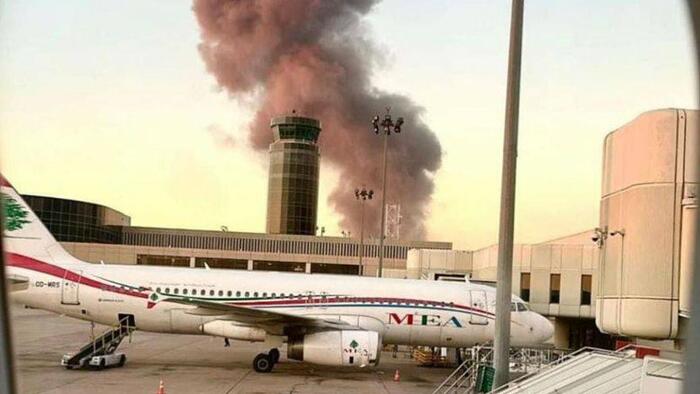Israeli airstrikes on Beirut have escalated dramatically, with the Israel Defense Forces (IDF) executing what they term “pinpoint” attacks that have created widespread panic among civilians. This recent wave of bombings marks one of the heaviest on the Lebanese capital, with incidents leading to large fireballs and ominous smoke clouds illuminating the night sky. The IDF claims to have targeted around 150 Hezbollah installations, including strategic weapons depots and a significant building close to a vital access route for Beirut’s international airport. The intensity and scale of the airstrikes have raised serious concerns regarding civilian safety and the humanitarian situation in Lebanon, as thousands remain in precarious conditions.
Despite the ongoing bombings, Middle East Airlines (MEA), Lebanon’s national carrier, continues its operations. Remarkably, flights are still departing and arriving at Rafic Hariri International Airport, even as bombings occur nearby. An Al Jazeera correspondent reported witnessing a plane take off amid the chaos, highlighting the airline’s decision to keep the airport operational despite the clear risks. Eyewitness accounts from both passengers and civilians reveal the fear that has gripped those in proximity to the attacks, with one Australian passenger recounting her terrifying experience as her flight prepared for departure during heavy bombing nearby.
Casualty figures from the recent airstrikes reported by the Lebanese health ministry indicate at least 23 deaths and 93 injuries on that particular Saturday, although the specifics concerning combatants versus civilians have not been released. The bombing of essential infrastructure, particularly roads leading to Beirut International Airport, poses significant challenges for any potential evacuations of civilians, including foreign nationals. Images shared through social media depict the devastation inflicted on critical access routes, stirring fears of entrapment for those seeking to flee the violence.
Amid these developments, American citizens residing in Lebanon have expressed feelings of abandonment by the U.S. State Department, contrasting their situation with the assistance provided to Americans in Israel post-attacks. Many have criticized the government’s perceived preferential treatment towards citizens in Israel while leaving those experiencing direct threats in Lebanon with limited support. This sentiment echoes the experiences of individuals like Hana Bechara, who decided the escalating conflict necessitated her departure from Lebanon after witnessing indiscriminate bombings in her neighborhood.
In retaliation, Hezbollah has intensified its attacks against Israel, firing over 110 rockets at northern cities like Haifa, demonstrating the rising levels of hostility on both sides. The IDF has reported additional launches, including 30 missiles aimed at Kiryat Shmona, signaling that the conflict is far from contained. The situation is further complicated by Israeli calls for residents in southern Lebanese villages to evacuate northward as the fighting escalates, underscoring the intensity and potential for a wider conflict.
In summary, the recent escalations in violence between Israel and Hezbollah reflect a perilous and volatile situation for civilians caught in the crossfire, raising urgent humanitarian and geopolitical concerns. With airstrikes shaking Beirut and retaliatory rocket attacks targeting Israeli territory, the ongoing conflict continues to draw in international attention as governments grapple with the challenges of assisting their citizens amidst escalating warfare. As the violence unfolds, the urgent need for humanitarian intervention and conflict resolution becomes increasingly crucial.

